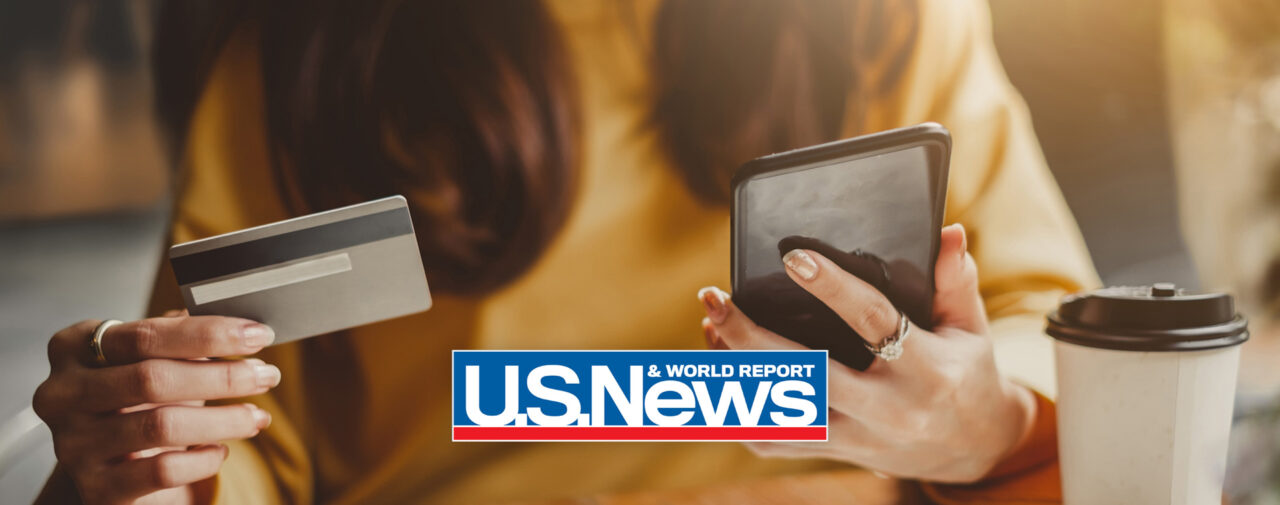
How to Use a Credit Card the Right Way
If you're new to credit or just unsure about how to use a credit card, have a seat and get comfortable. You'll have credit clarity in about four to six minutes, depending on how fast you read this.
And listen, don't feel bad about your lack of literacy. You are not the only one out there who doesn't understand the whole process or what it even means to use credit cards responsibly. Credit is not intuitive, so you aren't born with an innate knowledge about how this stuff works.
So, keep reading, and I'll show you everything you need to know about using credit cards responsibly. Up ahead:
Building Credit With a Credit Card
When you learn how to use your credit card the right way, you'll see your credit standing improve. To move things along more quickly, use less than 10% of your credit limit during the month, pay the balance in full by the due date and monitor your activity online.
Remember to pay all of your bills on time, not just your credit card bill. It takes time to establish (or rebuild) credit, so if you're new to this, be persistent and patient. In time, you'll develop a great credit score.
Create a Budget
You have to start with a good financial foundation. Think of this like the concrete foundation of a new house. If there's a crack in the foundation, your house is in trouble before you even move in.
Likewise, you shouldn't even get a credit card before you've set up a budget and have a way to track spending. Once you set up your budget, you can decide which expenses you want to put on your credit card.
[ READ: Best Credit Cards for Young Adults. ]
How to Choose the Right Credit Card
The type of card you need depends on your situation. Take a look at this brief rundown on the types of credit cards, and you'll see what I mean.
Secured credit card. This is a good choice for people who are new to credit or who are rebuilding their credit history. You do have to make a bank deposit to "secure" the card, but the credit card you receive looks just like an unsecured credit card.
Secured credit cards tend to have higher annual percentage rates and fees, but there are some excellent secured credit cards that will help you establish credit. Once you prove you can use a secured credit card responsibly, you'll be eligible for an unsecured credit card that will come with better terms.
Student credit card. If you're enrolled in college, you might qualify for a student credit card. The credit requirements are looser for a student credit card since it's designed for someone who is new to credit. However, if you're younger than 21, the Credit CARD Act of 2009 states that you must be able to prove you have sufficient income to repay debts.
Plain vanilla credit card. This is a credit card that doesn't offer rewards. Since it's a no-frills card, it usually doesn't have an annual fee. This type of card is often a good way to stick your toe in the credit waters without having to keep track of rewards.
Rewards credit cards. This category covers cards with general across-the-board rewards, category rewards, travel rewards, airline miles, cash back and much more. These cards usually require a good credit track record, so it might not be the card you start out with.
When you do feel ready for a rewards card, review the expenses in your budget. If you spend a lot in one area, consider a credit card that offers rewards in that area.
For example, let's say your gas expenses total $200 a month. You might decide to get a credit card with gas rewards. And your budget for the card is $200. Since you're tracking your expenses, you'll know if you are in danger of exceeding the limit. Some credit cards allow you to use your rewards as a statement credit, which helps you pay down your balance.
Read the Fine Print
No one likes to read the disclosure statements, but it's required reading if you want to use credit cards. Pay close attention to the Schumer box, which displays rates and fees, such as the APRs (purchase, balance transfers and cash advance), the grace period, annual fees, foreign transaction fees, and any balance transfer and cash advance fees.
You can find this on the card's home page by clicking on a link labeled "Rates & Fees," "Pricing & Terms," or similar wording. Sometimes, the link takes you to a new page, but there are also issuers who place this data at the bottom of the home page. In other words, it might take effort to find it, but you really need to read it.
One of the most important pieces of information is the length of the grace period. This is the period of time you have to pay your balance off without paying interest. It's usually between 21 and 25 days. Do not get a credit card that has no grace period. And yes, they do exist!
[ READ: Best Student Credit Cards. ]
How to Avoid Paying Interest on Credit Cards
If you use a credit card the right way, you won't have to pay interest. This is why it's so important to track your expenses and avoid overspending. If you carry a balance from month to month, you'll pay interest on your purchases.
If you make that a habit, you'll end up in credit card debt. Don't let that happen!
Check Your Credit Card Account Online
There are two reasons you need to monitor your account frequently. The first reason is to make a concrete connection with your credit card purchases. It's easy to have a disconnect with financial reality when you aren't handling cash. So when you see the transactions online, it reinforces the fact that you've spent money.
The second reason is to look for fraud. Make sure you look for purchases you didn’t make. Sometimes, a fraudster will use the account for a purchase under $10, so be sure you look at all the transactions. If you do see something suspicious, follow the steps outlined by the Federal Trade Commission for reporting fraud.
It's also a smart idea to check your annual credit reports. You're entitled to a free annual credit report from each of the three major credit bureaus: Equifax, Experian and TransUnion. Review these reports to look for errors or for any accounts you didn't open. Sometimes, a thief opens a new account in your name, and checking your credit report is the best way to uncover it.
[ READ: Best Credit Cards for No Credit. ]
Should You Use a Credit Card for Everything?
Some people use their credit cards to pay for the majority of their bills so they can maximize their rewards. This can be a good way to accumulate rewards quickly, but there is also a negative side to this approach. Unless you make two payments during the month, the balance reported to the credit bureaus might be high.
When your credit utilization is high, it can lower your credit score. Using your credit card for all expenses can also be risky if you aren't in a good place financially. Rewards credit cards often have higher APRs than plain credit cards. So, be sure you don't carry a balance from month to month. It's a good idea to make sure you have a solid emergency fund just in case something unexpected happens.

Beverly Harzog is a nationally recognized personal finance and credit card expert for U.S. News & World Report. She's also the bestselling and award-winning author of five personal finance books. Her expert advice has been featured in thousands of media outlets, including Fox News, CNN Newsource and Bloomberg.
Read the original article on the U.S. News & World Report website.
